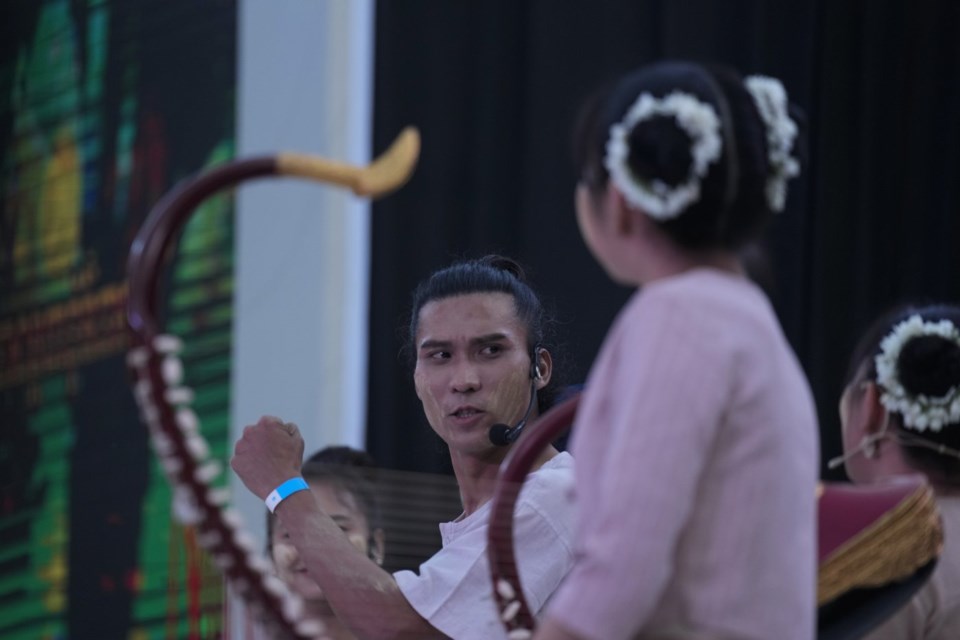YANGON, Myanmar (AP) — Supporters and opponents of Myanmar’s are engaged in a bloody civil war, but a celebration on Wednesday feted something almost all find worthy: the use of thanakha, a yellowish-white paste made from ground tree bark as a traditional natural cosmetic.
Thanakha-painted cheeks are ubiquitous in , where women and children apply the paste on their cheeks, nose, forehead, neck, forearms and shins after their morning showers, during the day and before bed. It’s not unusual for men to apply it on their faces. Now the tradition will be considered by the U.N.’s cultural agency.
Myanmar is applying to add thanakha to world list. The use of thanakha is believed to date back over 1,000 years. Murals showing is use can be seen in 11th century-temples in the old capital Bagan, a UNESCO World Heritage site.
Thanakha comes from the bark of several tropical sandalwood tree species that grow in central Myanmar’s dry zones, which are currently the stronghold of armed resistance to the army.
Foes of military rule are also devoted users of the paste, and in from the elected government of Aung San Suu Kyi, used it to paint protest symbols on their faces.
Members of 36 social organizations, ranging in age from 5 to 80, came together on Wednesday in a park in Yangon, Myanmar’s biggest city, to showcase thanakha as a symbol of Myanmar society by competing in traditional songs and dances. Outside the performance area, about a dozen stalls sold bunches of chopped thanakha wood and cosmetics made from thanakha.
Sandar Khin, chairperson of the Myanmar Cultural Heritage Trust, which organized the competition, said it was being held to highlight the culture of thanakha and help bring it to world attention.
Thanakha was initially proposed for inclusion on the UNESCO Intangible Cultural Heritage list in March 2020, but the application was rejected for being incomplete. The military government’s Ministry of Religious Affairs and Culture is working to submit a new nomination by the end of March.
If recognition is achieved, thanakha will become Myanmar's second intangible cultural heritage to be recognized by UNESCO, after its traditional water festival of was added last December.
Myanmar has already specified the full-moon day of Tabodwe, the 11th month in Myanmar’s traditional calendar, as “Myanma Thanakha Day."
Associated Press, The Associated Press



